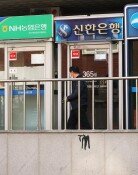[Editorial] Peninsula's external and internal developments
[Editorial] Peninsula's external and internal developments
Posted August. 21, 2000 21:46,
In the wake of the June 15 Joint Declaration, we are making headway in bringing rapid changes in inter-Korean relations. The changes are being accelerated with the lapse of time. The 2nd South-North ministerial talks slated for the end of this month, the repatriation of pro-Pyongyang long-term prisoners in early September, and the second round of separated family reunions will follow the August 15 reunions that drenched the South and the North in tears. Until not long ago, the development of such breathtaking exchanges and events between the two Koreas would have been viewed as unthinkable and unimaginable.
If we are obsessed with the peninsula`s accelerating internal changes, we may easily lose touch of what is happening outside the peninsula. Korea was divided due to international politics and rivalry among big powers surrounding the peninsula. Our stark reality is that it is still not easy for us to find any fundamental solution for the Korean division without their cooperation. This means that the more rapid the changes in inter-Korean relations become, the more cool-headed our attitude must be to follow up on the changes outside the Korean peninsula.
Any rapid changes in inter-Korean relations are bound to have substantial impact on the interests of the four big powers surrounding the Korean peninsula. For this reason, we can see recently their greatly increased visits to the Korean peninsula. We can sense an atmosphere here that the United States, in particular, which has long been our staunchest ally, appears to pay extraordinary attention to the inter-Korean developments. Many ruling and opposition lawmakers after their recent visits to the United States summarized what they perceived to be Washington`s sensitive responses to the emerging inter-Korean detente. Some Americans, they said, showed their positive support for the detente, while some appeared rather apprehensive about their loss of initiatives on the Korean issue and, in particular, about the possible changes in the status of the USFK. Varied and different perceptions among Americans over the inter-Korean development are also clearly discernible in the policies of the U.S. Democratic and Republican Parties in their Presidential election campaigns. The Democratic Party fully supports our Sunshine Policy while the Republican Party still maintains its negative stance against Pyongyang.
Parallel to such developments and inter-Korean relations, differences among Koreans in their perceptions of the United States are also clearly emerging. In some respects, the Maehyang-ri bombing exercises and the controversial SOFA revision of the USFK may have given rise to the strengthening of such differences among the Korean people. But, it is our view that our policies should aim to make our relations both with the United States and North Korea mutually beneficial and compatible. We think it undesirable, therefore, for rapid changes in inter-Korean relations to cause such respective differences in perception among Koreans against Americans, or vice versa.
In the Korea-U.S. symposium on Saturday that was co-organized by the Peace Foundation for 21st Century and the Peace Research Institute, the participants were all in agreement to argue that any radical anti-Americanism must be resisted, although we must be firm not to compromise our sovereignty in our relations with Washington. What was also emphasized there was the fact that Washington is our solid ally that can play the most important role in the building of a lasting structure of peace on the peninsula. This is the reason why we should give greater priority to our relations with the United States. At the same time, we should make our unfailing effort to give due consideration to the conduct of our "equidistance diplomacy`` with the peninsula`s four major powers in order to keep the momentum for the rapid development of inter-Korean relations.



![“한동훈, 정치생명 걸고 무소속 출마해 평가받는 것 고려할만”[정치를 부탁해]](https://dimg.donga.com/c/138/175/90/1/wps/NEWS/IMAGE/2026/01/19/133186982.1.jpg)
![‘건강 지킴이’ 당근, 효능 높이는 섭취법[정세연의 음식처방]](https://dimg.donga.com/c/138/175/90/1/wps/NEWS/IMAGE/2026/01/18/133181291.1.jpg)


